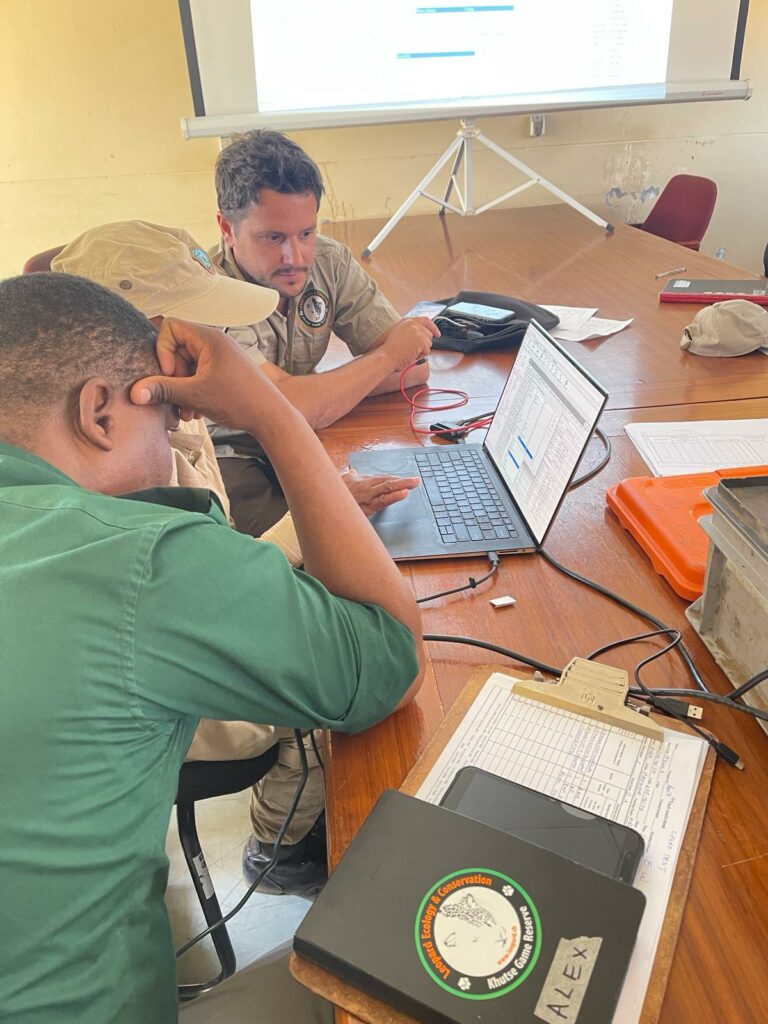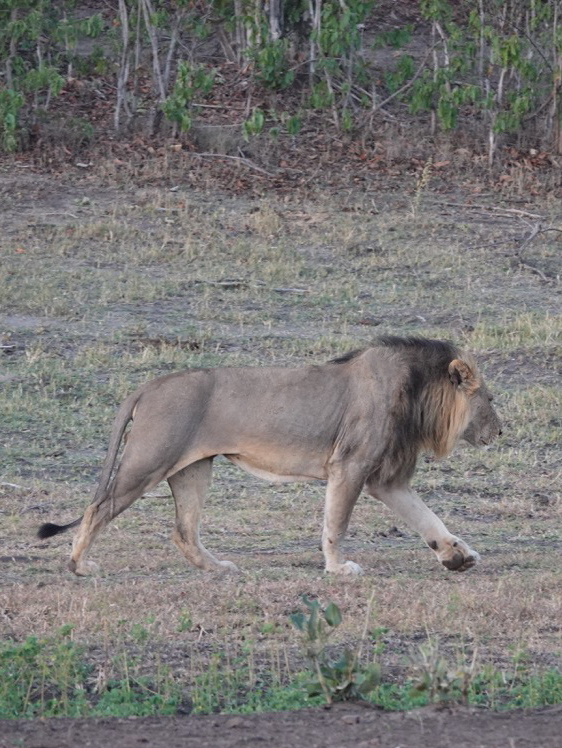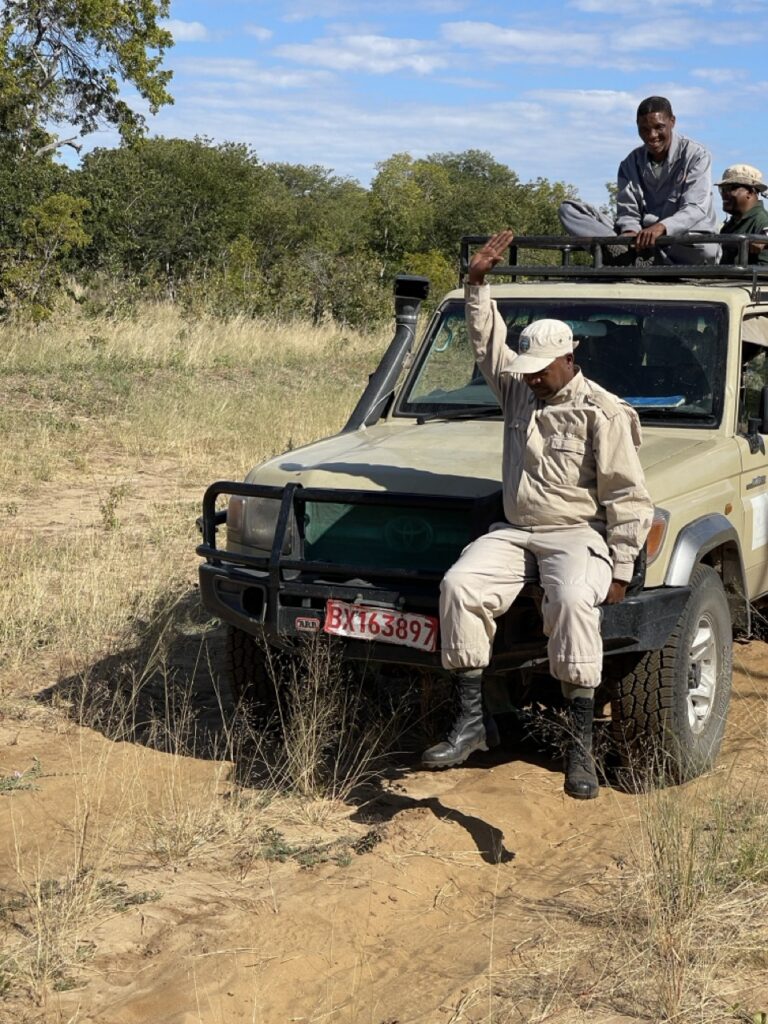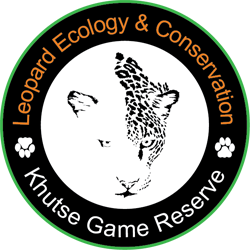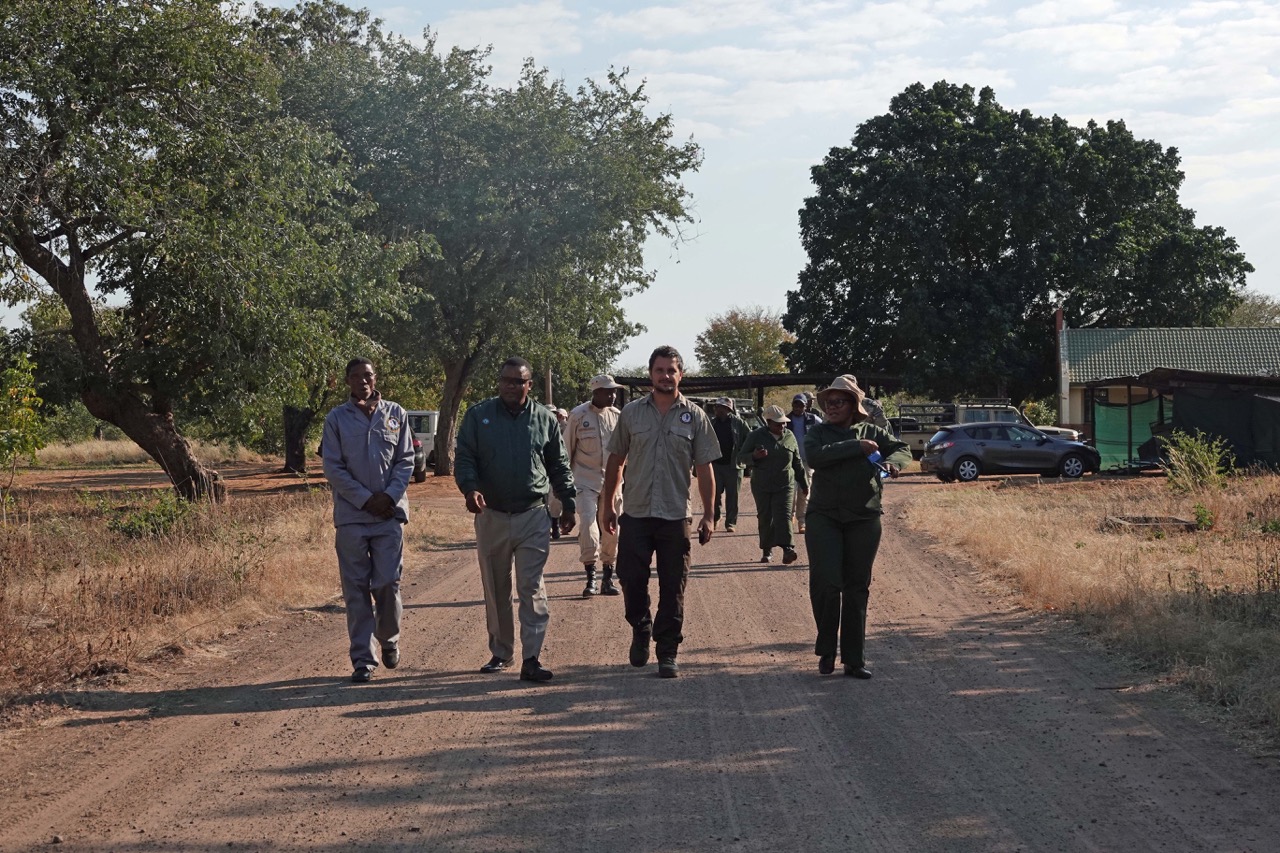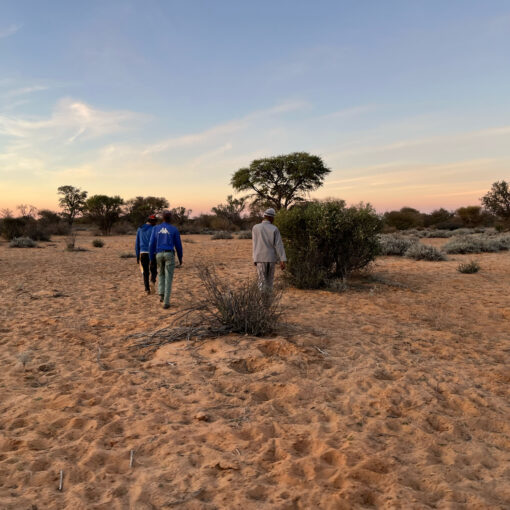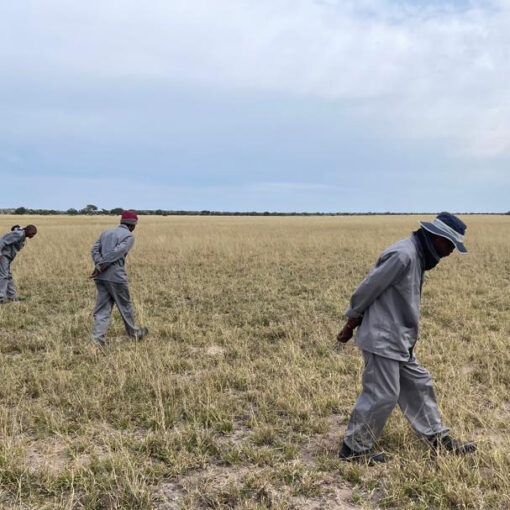In the last week of May 2024, LEC Research Department has travelled to Chobe National Park to carry out the tracking training course for the Department of Wildlife and National Parks (DWNP) officers. This is the second year that LEC in collaboration with WildCRU has offered an immersive workshop of four days to introduce DWNP officers to the amazing potential of applied tracking skills for monitoring wildlife in Botswana. In 2023, LEC together with researcher Marie-Charlotte Gielen (LEC, UCLouvain, Cheetah Conservation Botswana) have designed this training to provide DWNP with a better understanding of how track surveys can be used to monitor wildlife population, to manage the impact of fences, to assist in human-wildlife conflict mitigation and, in general, to collect more information on the behaviour and status of secretive animals.
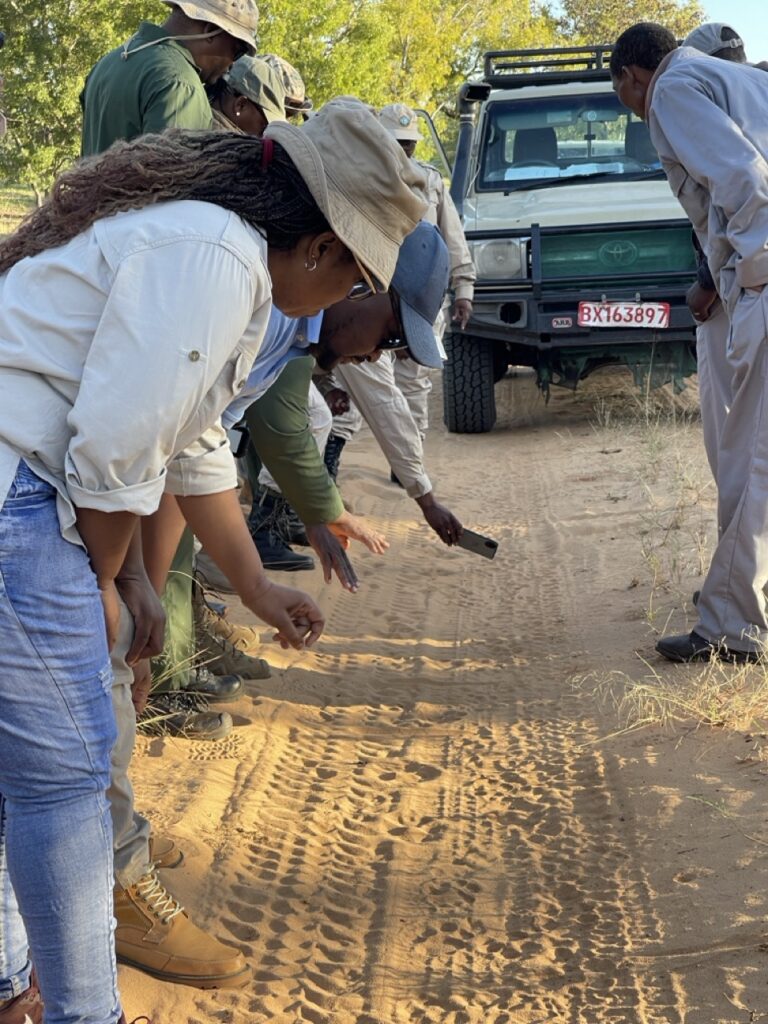
This year, Dr Jess Isden from WildCRU contacted LEC as more officers wanted to learn how to use tracks to accomplish their targets as managers of the protected areas and wildlife across Botswana. While in 2023, we tested our brand-new workshop in our familiar Khutse G.R., in 2024 we decided to challenge our-selves by going to share our knowledge in a very different setup, the Chobe NP riverfront and its surroundings. The challenge consisted in testing our skills in a different landscape with different species and none of our trackers had ever visited these areas. Nevertheless, we strongly believe that tracking processes can be used and adapted to many situations and with the correct approach LEC trackers’ skills can be transferred in different scenarios.
First of all, we did some research to see what species would have been present and which one of the new species could become a trap for our eyes. While Alessandro and Marie-Charlotte took care of reviewing the theoretical side of the workshop, updating it with the latest findings in research, Africa and Mosepele, two of our most experienced trackers, studied the new species tracks. The long drive to Kasane (1200 km from Khutse GR) allowed us to test each other and simultaneously to discover another Botswana unknown to us. After a refreshing night at Kazungula and having spotted warthogs and impalas waiting at bus stops, we met our DWNP team at the Antipoaching offices by Sedudu gate in Kasane. I think the officers could perceive our excitement of being there and this became quite contagious.
Our days were a balance between theory and practice in the field. The goal was not to transform the officers in skilled trackers in just few days, but to provide an understanding of what can be done using tracks, how survey protocols need to be designed, what tools are available to optimise time and reduce mistakes in data collection. At the end of the four days, we learnt a lot from the DWNP officers and we can certainly say that we could share some of our knowledge with them. As a team, we created a customised CyberTracker app for the future track surveys in Chobe National Park and with WildCRU we will continue supporting this very motivated DWNP team for data analysis and survey protocol design. Africa and Mosepele have impressed the officers with their tracking skills once again and have proven that good trackers are very fast in adapting their skills to new environments. The trip was a special opportunity for part of LEC team to accept a small challenge, to learn and to strengthen our support to DWNP, but also to experience the beauty of the Chobe river and its wildlife. (Text by Alessandro Araldi, Research Coordinator)
